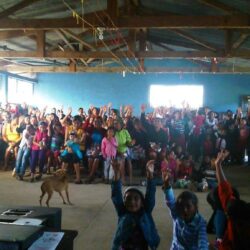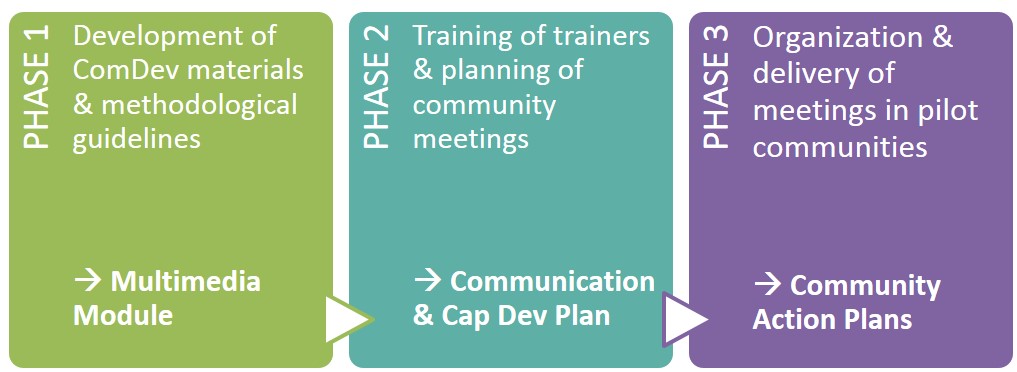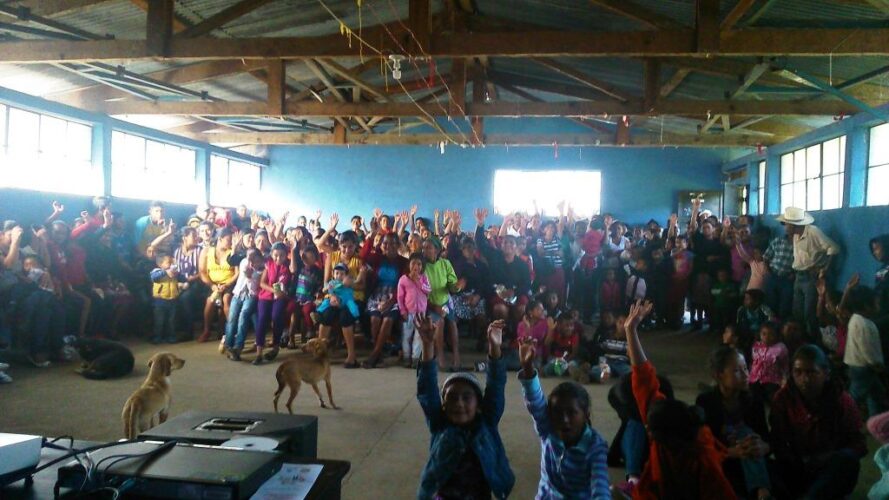
Participatory communication is a powerful means to enable the informed and active engagement of individuals and groups in decisions that affect their life. This is the case also with land tenure, and is the focus of a FAO Communication for Development initiative to support the recognition and responsible governance of communal land in Guatemala.
Over 1.5 million hectares, 15% of the national territory, is owned collectively, often under traditional or customary tenure systems. Communal lands are in fact mostly found in forest areas populated by farming communities and Indigenous Peoples. Due to uncertain tenure rights over their land, these communities are highly vulnerable to claims by external actors and are often involved in conflicts with neighbours or private companies. At the same time, they suffer from limited access to services, incentives and development opportunities in general.
FAO in Guatemala is collaborating closely with the Grupo Promotor de Tierras Comunales – an interinstitutional group of institutional and CSO actors advocating for communal land rights – to assist the government in implementing the Voluntary Guidelines on the Responsible Governance of Tenure and in particular to use participatory ComDev methods and tools to:
(1) Inform local communities about the legal framework, concrete options, steps to follow to claim communal tenure rights and the related benefits
(2) Document and share successful experiences and lesson learned by local communities
(3) Facilitate capacity development, social dialogue, local consultations and concerted action using participatory communication methods and materials
A MULTIMEDIA MODULE ON COMMUNAL LAND
FAO facilitated a series of consultations with local specialists and technicians to identify major issues, knowledge gaps and information needs, and to select relevant and illustrative cases that would help to develop the core content of the ComDev materials. In partnership with the Centro de Comunicación para el Desarrollo -CECODE were produced short documentaries involving local indigenous and farming communities that successfully manage communal land or achieved their legal recognition, as well as one instructional video composed of 5 thematic units.
The multimedia module includes a participant’s brochure and a methodological guide meant to orient facilitators in organizing and conducting participatory processes using the audiovisual materials to facilitate discussion and action planning in local communities. In addition, radio programs produced in partnership with the Federación Guatemalteca de Escuelas Radiofonicas (FGER) are being broadcasted in Maya languages across the country.
Watch the videos produced as part of the Module for Communication and Capacity Development on Communal Land in the FAO YouTube channel
FOSTERING DIALOGUE AND COMMUNITY MOBILIZATION
Last June in Guatemala City, FAO and the Faculty of Agriculture of the University of San Carlos trained 30 representatives of rural and forestry institutions, producer groups, civil society and indigenous peoples organizations from across the country, on the use of ComDev methods and materials in order to support local processes of responsible governance of communal land (read more).

The group of trained facilitators formulated a Communication and Capacity Development Plan and identified priority communities to work with.
In the next phase, they are going to use the module to raise awareness, promote knowledge sharing among communities, and generate local discussion and action plans for improved governance and recognition of communal land.
Photo credit: CECODE

